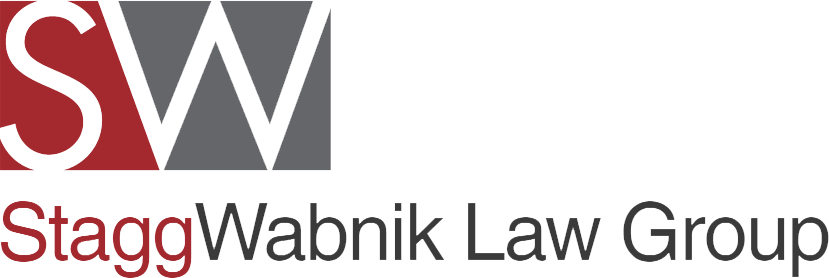Ensuring Compliance with the Corporate Transparency Act (CTA): A Guide for Businesses
- Stagg Wabnik
- Nov 13, 2024
- 4 min read
Updated: Jul 25, 2025

Update - As of March 26, 2025, the BOI reporting requirement no longer applies to U.S. businesses or U.S. persons under the Corporate Transparency Act. All existing reporting obligations now only apply to foreign companies registered to do business in the U.S. The information below is preserved for archival purposes.
In recent years, transparency in business operations has become a priority for companies and regulators. Enacted in January 2021, the Corporate Transparency Act (CTA) is a significant step in the U.S. government's effort to prevent illicit activities such as money laundering and tax evasion. The CTA enhances accountability and promotes ethical business practices by requiring certain entities to disclose beneficial ownership information to the Financial Crimes Enforcement Network (FinCEN).
What is the Corporate Transparency Act?
The Corporate Transparency Act requires corporations, limited liability companies (LLCs), and similar entities to submit information about their beneficial owners. Beneficial owners hold significant ownership interests or exercise substantial control over a company. The CTA aims to prevent the misuse of shell companies for illegal activities by making it more challenging to hide ownership and financial activity from regulators.
While the CTA mandates compliance for many organizations, certain large and regulated companies, such as publicly traded corporations and financial institutions, are exempt. For companies covered under the CTA, understanding its requirements is essential for avoiding penalties and ensuring their operations align with federal regulations.
Who Needs to Report Under the CTA?
The CTA's reporting requirements apply to both domestic and foreign entities registered to do business in the United States. However, there are exemptions for entities that are already highly regulated or have an established presence. Companies that may be exempt include:
Publicly traded companies
Banks and credit unions
Government entities
Entities with more than 20 employees, over $5 million in revenue, and a physical office in the U.S.
Small businesses and privately held companies are more likely to be subject to CTA compliance, as these entities may not be subject to the same oversight as larger organizations.
What Information Must Be Reported?
To comply with the CTA, affected companies must provide FinCEN with specific information about their beneficial owners, including:
Full Legal Name: The full name of each beneficial owner.
Date of Birth: The date of birth of each beneficial owner.
Residential or Business Address: An address associated with the beneficial owner, which could be a residence or business location.
Unique Identifying Number: This could be from an acceptable government-issued document, such as a passport or driver’s license.
This information helps FinCEN create a database of beneficial owners that can be used for regulatory purposes. It's essential to ensure accuracy, as any errors could result in delays or penalties.
Key Compliance Deadlines
The CTA sets specific deadlines for reporting beneficial ownership information, depending on the date of an entity’s formation:
Existing Entities: Businesses formed before January 1, 2025, must submit their initial beneficial ownership report by this date.
New Entities: Businesses formed on or after January 1, 2025, have 30 days from the date of formation to file their report with FinCEN.
Entities must also update their filings within 30 days of any changes in beneficial ownership, such as the addition or removal of an owner or an address change. Failure to meet these deadlines may lead to penalties.
Penalties for Non-Compliance
The CTA imposes significant penalties on companies that fail to comply with its reporting requirements. Fines for non-compliance can be as high as $500 per day, with criminal penalties reaching up to $10,000 or imprisonment for up to two years in cases of willful non-compliance. These penalties underscore the importance of maintaining accurate records and ensuring timely filings.
Companies should be proactive in meeting the CTA's requirements, as the financial and legal repercussions of non-compliance can be substantial. Compliance protects the business from penalties and supports the government's mission to promote transparency and prevent financial crimes.
Steps for Ensuring CTA Compliance
To ensure compliance with the Corporate Transparency Act, companies should take several key steps:
Evaluate Applicability: Review the CTA’s requirements and exemptions to determine if your organization needs to comply. Even if a company qualifies for an exemption, it’s essential to document this status.
Gather Beneficial Ownership Information: Collect the required information for each beneficial owner, ensuring that it is accurate and up-to-date.
Establish Reporting Procedures: Develop internal procedures for submitting initial and updated reports to FinCEN. Consider designating a compliance officer or working with legal counsel to manage this process.
Monitor Ownership Changes: Put mechanisms in place to track any beneficial ownership changes and prepare to file updated information as needed.
Stay Informed on Regulatory Updates: FinCEN may issue additional guidance or changes to the CTA’s implementation. Staying informed helps ensure ongoing compliance and protects against unexpected penalties.
Protecting Your Business with Proactive Compliance
By adhering to the CTA, businesses demonstrate their commitment to transparency and integrity. Compliance with the CTA fulfills legal obligations and enhances a company's reputation, fostering trust among stakeholders, clients, and partners. For many organizations, compliance with federal regulations is a cornerstone of maintaining operational stability and long-term success.
Implementing proactive compliance measures, such as designating compliance responsibilities and regularly reviewing beneficial ownership information, can streamline the process. Taking these steps helps businesses avoid unexpected challenges and costly penalties while ensuring alignment with federal transparency initiatives.
Contact Stagg Wabnik Law Group
Ensuring compliance with the Corporate Transparency Act is crucial to modern corporate governance. For guidance on navigating the CTA and implementing effective compliance strategies, contact Stagg Wabnik Law Group at 516-812-4550 or reach out through the contact page. Proactive compliance with the CTA safeguards your business and reinforces its commitment to ethical practices, providing peace of mind and a solid foundation for future success.





Comments